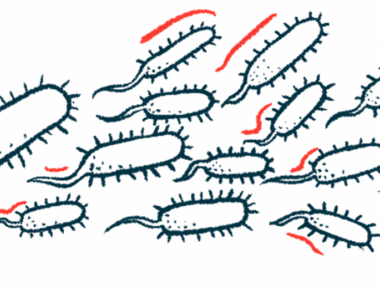Cancer Therapies May Boost Risk of Acquired Hem A, Analysis Says
Written by |

Immune checkpoint inhibitors (ICIs) used for cancer treatment may be associated with an increased likelihood of developing acquired hemophilia A, according to an analysis of an adverse events database.
Although the small number of reports do not confirm that these therapies are causing the bleeding disorder, early identification and management of ICI-induced hemophilia A may allow the continuation of cancer therapy, the researchers said.
They noted that more data are needed to assess the incidence and risk factors related to this potential adverse event.
The database analysis was published in the journal Haemophilia, in a letter to the editor, titled “Immune checkpoint inhibitor-induced acquired haemophilia: A pharmacovigilance analysis of the FDA adverse event reporting system.”
What are immune checkpoint inhibitors?
Immune checkpoint inhibitors are a widely used type of cancer therapy designed to block proteins that stop the immune system from attacking cancer cells.
The primary safety issue with these agents is immune-related adverse events (AEs), caused by the abnormal activation of immune T-cells against the body. The most commonly reported immune AEs affect the skin, the digestive tract, the lungs, and the body’s hormonal system.
Case reports have indicated that ICIs may also trigger acquired hemophilia A — a bleeding disorder caused by a missing or defective blood clotting factor VIII protein, leading to symptoms such as prolonged and excessive bleeding.
Investigators based at the Levine Cancer Institute in North Carolina now aimed to determine if there is an association between ICIs and the development of acquired hemophilia A.
The team gathered data from the U.S. Food and Drug Administration Adverse Event Reporting System (FAERS), a database that contains information on adverse events and medication errors submitted to the FDA. This database supports the FDA’s post-marketing safety surveillance program for medications and biologic therapies.
“To the best of our knowledge, this analysis is the first to utilize a pharmacovigilance database to investigate the association between ICI therapies and increased risk for AHA [acquired hemophilia A],” the team wrote.
From the beginning of 2011 to the end of 2021, the number of adverse events reported totaled 17,596,637 for all therapies in FAERS. Among them, 12 reported acquired hemophilia A cases were associated with ICI exposure.
Seven occurred with the immune checkpoint Opdivo (nivolumab), three with Yervoy (ipilimumab), and three due to Keytruda (pembrolizumab). One report occurred after a combination of Opdivo and Yervoy.
There were no reports of aquired hemophilia A with the immune checkpoint inhibitors Bavencio (avelumab), Imfinzi (durvalumab), Libtayo (cimiplimab), and Tecentriq (atezolizumab).
The median age of affected patients was 67 years, and most reports were submitted by healthcare professionals. The most common cancers included malignant melanoma, non-small cell lung cancer, and renal cell carcinoma.
Statistical analyses found that the likelihood of an acquired hemophilia A report was 3.8 times higher for Yervoy, 4.2 times higher for Opdivo, and 3.2 times greater for Keytruda.
All reports of acquired hemophilia A were deemed serious events, with hospitalization occurring in six cases. Two of these cases were considered life-threatening, and two deaths were reported, one with Keytruda and one with Yervoy.
The researchers proposed that ICI-induced acquired hemophilia A may be due to an autoimmune response leading to the production of self-reactive antibodies that target the FVIII protein. They also added that FAERS reports do not confirm that these therapies cause acquired hemophilia A, as cancer itself can also lead to the bleeding disorder.
“AHA secondary to ICI therapy may lead to permanent discontinuation of ICI therapy, which can potentially impact outcomes for patients with cancer receiving these therapies,” the researchers wrote. “More data is needed to assess the incidence and risk factors associated with the [development] of ICI-induced AHA.”
“Early identification and prompt management of ICI-induced AHA may allow continuation of ICI therapy,” they concluded.




